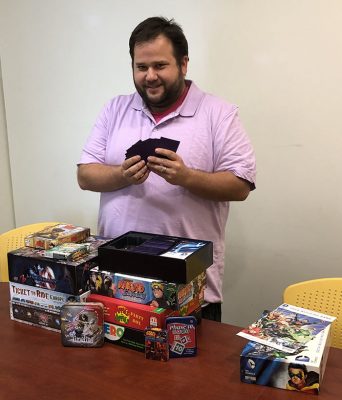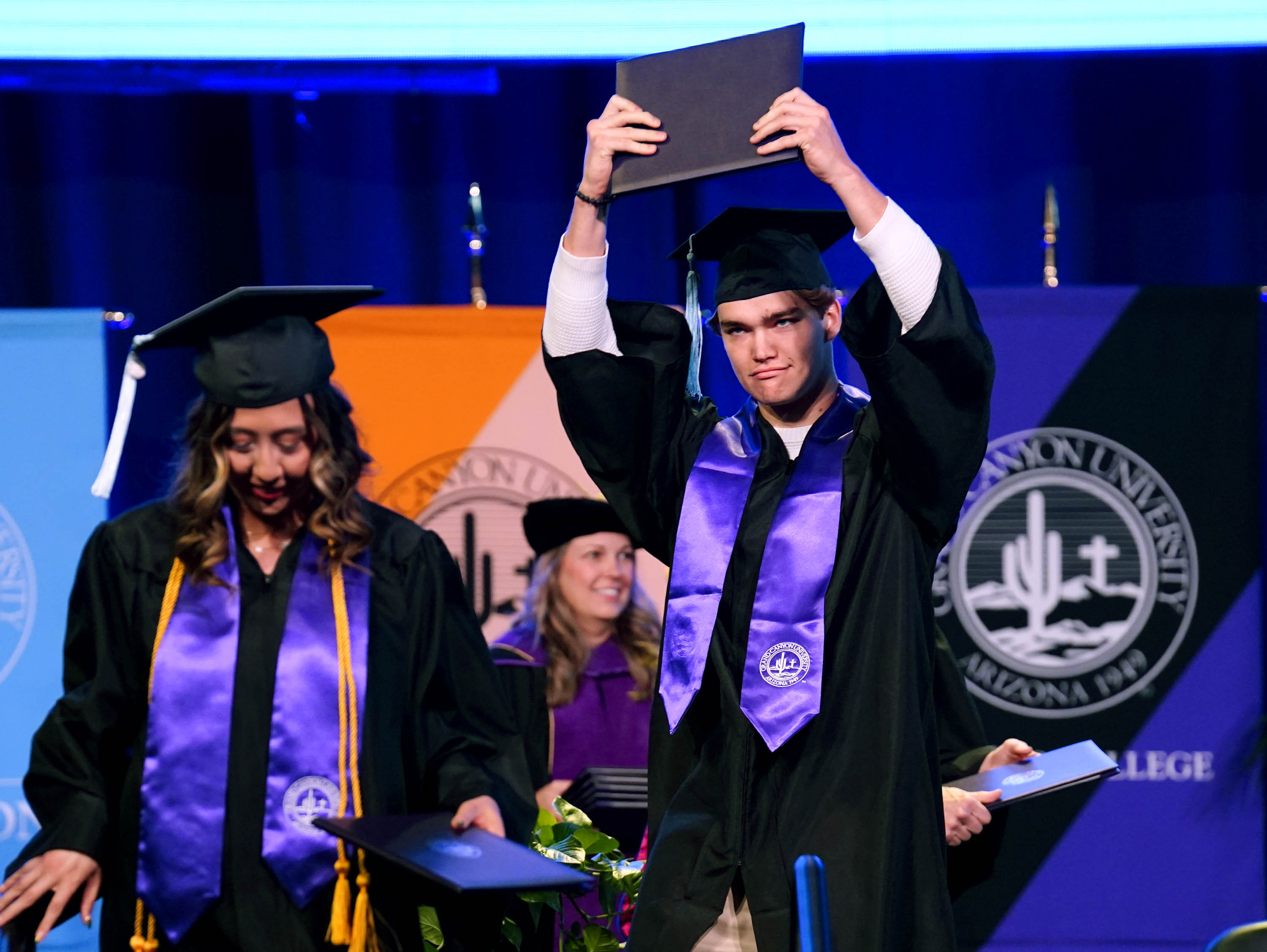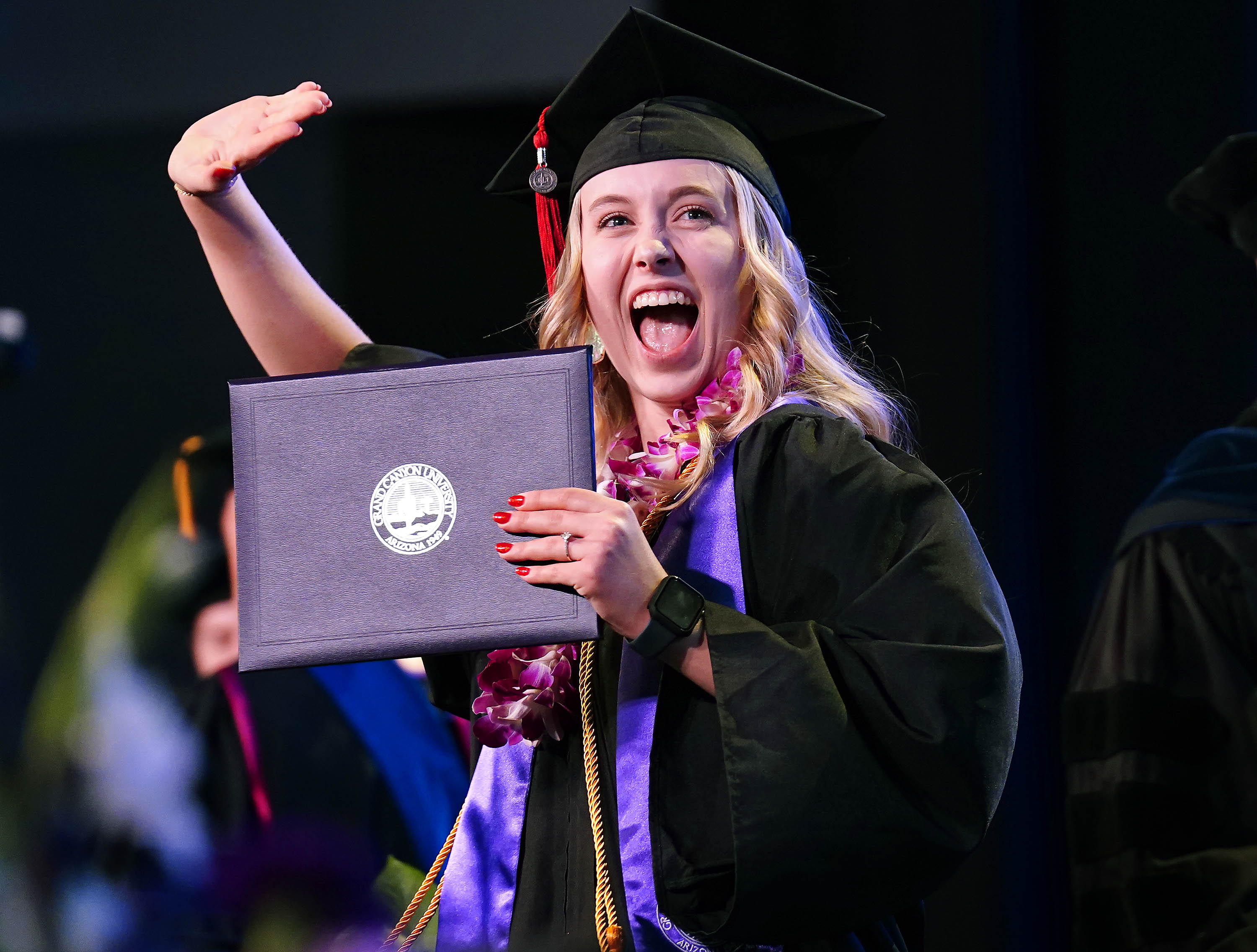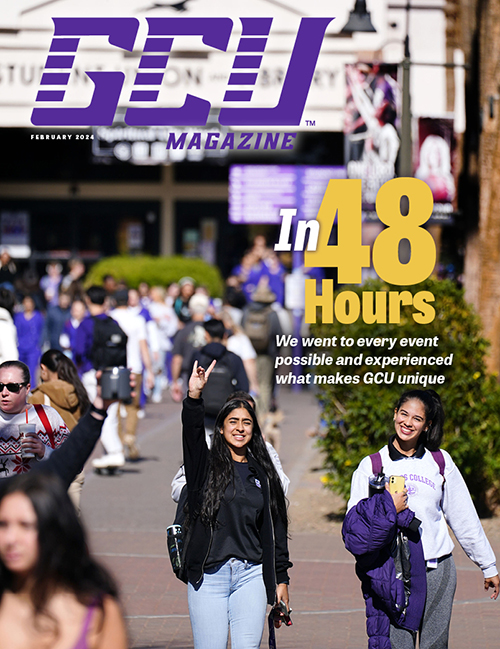
Second of a three-part series. For Part 1, which includes a story and video, click here.
By Theresa Smith
GCU News Bureau
A Grand Canyon University student with autism spectrum disorder (ASD) cautiously put himself out there, attending a club meeting on campus. Afterward, club members scattered in pairs and groups, indicating that there were not enough seats in the car headed to Dutch Bros. The student thought, why can’t I be one of the people already in the car?
This scenario is familiar to Beth Jamison, GCU’s Director of Student Disability Services (SDS). She has been told many versions of this story by students with ASD and their parents -- stories of struggling to fit in, read social cues and make friends.
“We ask ourselves, ‘Gosh, how do we try to help with that?’’’ Jamison said. “The majority, if not all of the kids on the spectrum, are not going to have a driver’s license. So our ASD students either don’t have a car or they don’t have a license. So we might want to say, ‘Hey, the superhero movie coming out is the big thing, so we’ll get a GCU van and there are X amounts of seats. Bring a friend.’ And we’ll have staff drive it, so they have transportation, and they’ll have a good time.’’

This solution is among the remedies Jamison and her staff and other campus leaders are collaborating on as increasing numbers of students with ASD arrive at GCU.
As Dr. Tim Griffin, Pastor and Dean of Students, explained, “We are having more conversations internally about students on the spectrum that we’ve had in the past simply because there are more students here, so there are more students that fit into that population. Usually we end up having conversations about these students when something happens. They have an episode or an incident and all of a sudden we discover that a particular student may have those kinds of challenges. Oh, OK, now it makes sense why there was an outburst or a roommate conflict. And all of a sudden it becomes clear that we have a unique set of challenges that we need to figure out how to navigate.’’
In the collaborative process, SDS guides, Resident Directors and Resident Assistants train and re-train, and neurotypical students are enlightened.
“When a student has an incident and we learn that they are on the spectrum, what can we teach the (neuro)typical student about students in this particular population in a way that everybody learns and everybody becomes more supportive?’’ Griffin asked. “So what it has done for us as a staff is to say, ‘How do we manage this, from a staffing standpoint, from a training standpoint, from a programmatic standpoint?’ So it’s constant. We are on the learning curve every year. And as we continue to get bigger, we become more aware of what we need to do for these students.’’
Dr. Sherman Elliott, Dean of the College of Humanities and Social Sciences and the father of a teenager with ASD, shares his first-hand knowledge and his extensive research of ASD with faculty members. In a recent situation, he played a mediator role.
“I dealt with a student and his father,’’ he said. “The young man was a straight-A student yet not doing well in a class in my college, and it was a familiar problem. The two minds were not meeting. The professor and the learner were not meeting.’’
After working with both sides, the professor gained a deeper understanding of the student’s needs, and the student made a concerted effort to seek the professor’s help. His confidence rose along with his grades.

“At least half the time they get better in the class and the relationship improves,’’ Elliott said. “The faculty member learns how to approach them in such a way to build trust. It is not the same as working with a neurotypical student or even a special education student. It is in a category unto itself. So faculty members have been fantastic; they have been very loving.’’
Along with faculty members, Elliott consults regularly with Jamison.
“She has been fantastic,’’ he said. “She and I exchanged ideas and articles and she started to implement the peer mentor system. Improvements are happening with the connections that Beth Jamison is making.’’
Jamison and her staff, including administrator Ray Anderson, are the campus point people for helping students with ASD navigate college life.
“GCU is very ahead in a lot of ways,’’ she said. “It is just built in with Life Leaders and kind, Christian students. There are activities by floor in each residence hall. We have ACE (Academic and Career Excellence centers) for tutoring, the Library help line has long hours. Students can go in person or via chat or email or telephone. There is help, especially with searching for sources. Also, the College of Theology professors teaching the Christian worldview class are really helpful. They teach all the freshmen and the transfers, so they are on the front line. The English faculty is on the front line, too, because everybody has to take English.”
The flexibility of reading resources is another plus. While e-books are offered in nearly every class, some students with ASD prefer actual books. The e-book publishers permit students to print one copy for their own personal use. For those who prefer to listen, the e-books have audio capabilities.

In establishing ASD Connection, a new program of academic and social support, Jamison and her staff invite students with ASD to meet frequently for time-management assistance, study hall and academic progress monitoring. They check in with each student weekly via phone call since emails were not always returned in the past, and they use the remind app to stay in touch.
From a social standpoint, they organize game nights, for board game and video game play, as well as small group outings.
In large events such as Midnight Madness, they let them go into the Arena early "so they have the same experience as other students but in a more comfortable way,’’ Jamison said.
Similarly, students with ASD are permitted to arrive early to Chapel and to leave Chapel early.
With an event such as Movies on the Lawn, it can get more complicated.
“Movies on the Lawn is exciting and a lot of times it is something they are interested in, but some of them are extremely overwhelmed by the volume of people that are going to show up,’’ Jamison said. “If it is even hundreds or just 100, that’s a lot of people, and it is overwhelming. So we just offer the same movie in a small venue, like a lecture hall, and we keep it to 10 to 15 people and they can bring a friend. On a smaller scale in a little more comfortable environment, it is less overwhelming and they can make it their own.’’
Another stumbling block for students with ASD, Jamison learned from parents, is navigating online intramural registration.
“There is a part about forming your own team, which made some students nervous,’’ she said. “They were thinking, ‘I don’t know 10 people.’ And they didn’t call or ask. They didn’t take the next step. Since we want to get a feel for what they’re interested in, we are bringing intramural reps and club reps to them to answer their questions.’’
Once students with ASD express interest in a club or an intramural sport, Jamison and her staff offer to provide a student worker to attend the first or first and second meeting with them until they feel comfortable attending on their own.

Time management for class assignments is often another impediment since many students with ASD come from K-12 systems replete with academic aids.
“Sometimes their biggest challenge is, ‘How am I going to fit all this in a week and still enjoy myself?’’’ Jamison said. “That’s what we want to stress: If you are overly focused on academics, you don’t have work-life balance. So helping them find balance with fitting in the social things is part of what we want to do because that’s part of the GCU experience and the college experience as a whole.’’
It is a work in progress as mentorship programs with Residence Life and the College of Education (COE) are explored and an advisory board is formed. It will be comprised of parents of students on the spectrum, faculty and staff who have sons and daughters on the spectrum, faculty members involved in researching autism and faculty who teach the Master of Arts in ASD.
“So far, we have very positive responses,’’ Jamison said. “Families are pleased that we are aware of their students and are helping them navigate the various resources available to help them be successful at GCU and beyond. And some of the families that we’ve had for a while are excited that some of their suggestions are now being addressed.’’
As more ASD Connection programming rolls out, Jamison and her staff are relying on surveys from students with ASD and parental input gathered by Charity Norman and Robyn Hord in Welcome Programs. ASD also has received feedback from other campus leaders, including Griffin; Matt Hopkins, Director of Residence Life; and Dr. Kimberly LaPrade, Dean of the COE.
“We are hoping it is going to take off,’’ she said. “Number one, it is a great population of students that we want to reach. And number two, it is so GCU. It 100 percent embodies all the things GCU values and holds dear.’’
From Elliott’s perspective, Jamison is wholly defining GCU’s Christian worldview.
“If someone functions differently than you do, does that mean they are not worthy of learning about Jesus?’’ he asked rhetorically. “The majesty and the beauty of a Christian worldview is that faculty are so loving and our students are loving to each other.’’
Contact Theresa Smith at (602) 639-7457 or [email protected].
****
Coming Friday: One GCU student's journey with autism



